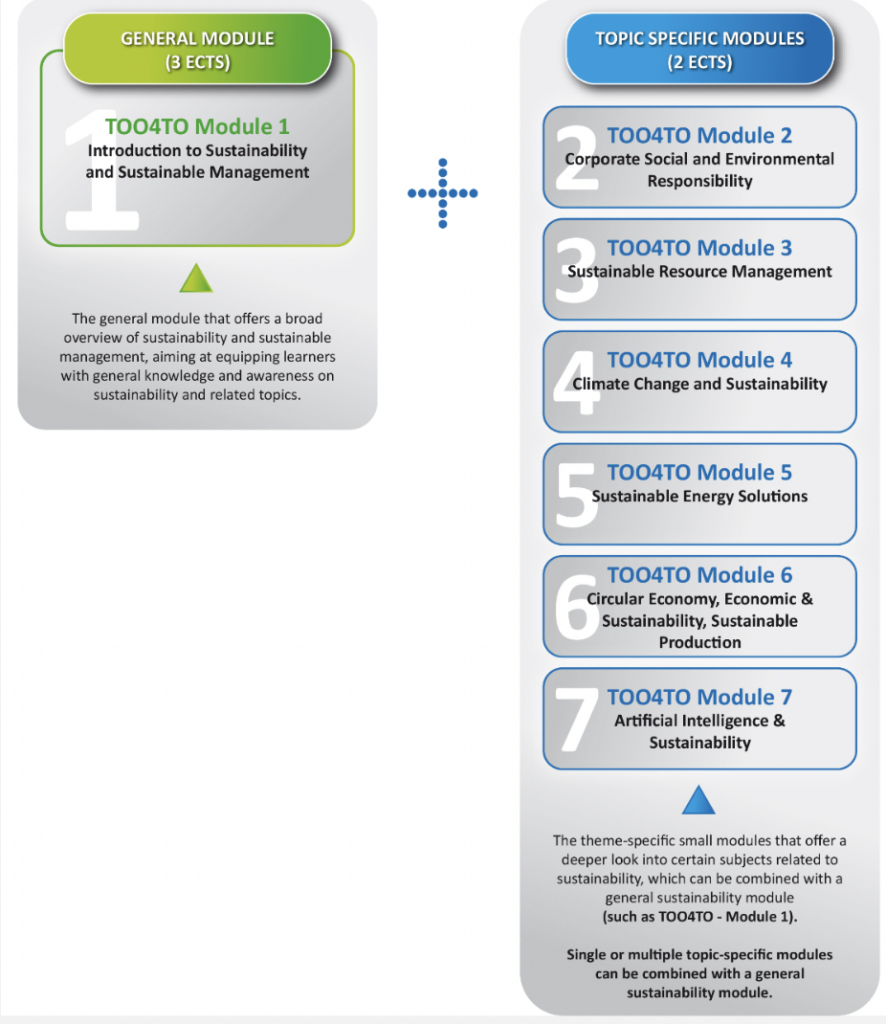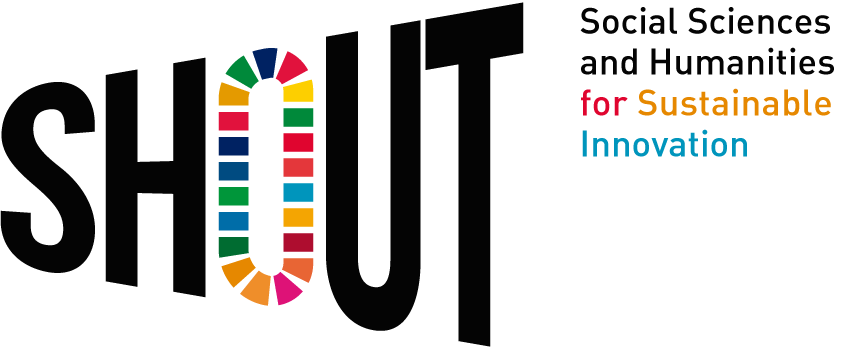Sustainable Management: Tools for Tomorrow (TOO4TO)” is a transnational project co-funded by the European Union’s Erasmus+ Program. The project aims to increase the skills, competences, and awareness of future managers and employees in the field of available tools and methods to provide sustainable management, and, as a result, support sustainable development in the EU and beyond.
The project has been implemented by four organizations: Gdańsk University of Technology (GUT), Turku University of Applied Sciences Ltd. (Turku UAS), Kaunas University of Technology (KTU), Global Impact Grid (GIG).
For more information on the TOO4TO project, please visit https://too4to.eu/
TOO4TO MODULES’ RATIONALE
TOO4TO Module on Introduction to Sustainability and Sustainable Management has been developed based on the TOO4TO Training Curriculum.
TOO4TO Training Curriculum comprises an introductory module, Introduction to Sustainability and Sustainable Management, (3 ECTS / 90 hours) and six topic-specific modules (2 ECTS / 60 hours each).
The content of each module is supported with a pool of sources, the TOO4TO Dynamic Material Bank.
The module on Introduction to Sustainability and
Sustainable Management can be taught / studied as a single standing course, and it can also be combined with one of the (or multiple) topic-specific modules for a deeper look into a certain sustainability subject area.

Why to Learn About
Sustainability and Sustainable Management
Sustainability is not a new concept, but the gravity of global challenges that is experienced today has made sustainability become at the core agenda of all kinds of institutions around the world. Climate crisis, depletion of essential resources, global poverty and rising inequalities require a systemic transformation in how economies, organizations, as well as everyday life are approached and managed.
While there has been intensified research and discussions on sustainable economic theories and sustainable management models and tools in academia; several international initiatives and movements have emerged on a practical level, calling for collaborative action for sustainability.
In this context, it is not anymore a choice, but a must for organizations to integrate sustainability and sustainable management at the core of their everyday functions, not only for their own success in the long term, but also for the survival of the planet.
Therefore, sustainability and sustainable management are getting more and more mainstreamed as learning / teaching
topics in all kinds of disciplines today, and multidisciplinary synergies are used to facilitate the learning and teaching processes.
Content
The purpose of this introductory module is to make students gain general knowledge and awareness on sustainability
and sustainable management; and thereby, help them become not only responsible individuals themselves, but also
change agents in their workplaces for sustainability.
The module is composed of three parts:
Part 1: Definitions; Background and History; Actors
Part 2: Sustainability and Economic Activities: New Approaches
Part3: Sustainability in Organizational Context
Learning Objectives
Students will gain essential knowledge on the global challenges that have led to the development of and intensified discussions on the concepts of sustainability and sustainable management. They will also learn about the main international institutions and initiatives addressing sustainability issues, such as UN Global Compact and UN SDGs.
Students will develop a general understanding of the main theories and approaches on economic and management systems for transformation towards sustainability, such as the alternative ‘economic growth’ theories.
Students will learn about the role of organizations in sustainable development, as well as primary models and tools applied in organizations for sustainable management (such as for sustainable stakeholder management, sustainability reporting, etc.).
Learning Outcomes
Students will be able to respond to sustainability-related issues in their environment and act as change agents in spreading and mainstreaming sustainability knowledge in their workplace and everyday life.
Students will be able to critically evaluate the current economic and management systems from the sustainability perspective and offer (new) approaches within the sustainability framework.
Students will be able to critically assess the activities and functions of their workplaces in terms of sustainable management and suggest (new) models and tools that can transform their organizations towards sustainability.
How to Use Module Presentations
This presentation on Introduction to Sustainability and Sustainable Management can be used by teachers as a base to create their own teaching / learning materials for a similar module, and self-learners that want to gain basic knowledge and overview on the topics of sustainability and sustainable
management.
On each slide, there are links to the sources where certain descriptions are taken. In addition, certain grey literature materials (e.g. non-academic articles, blog-posts, short presentation and animation videos) are presented as “short read” / “short video” for further elaboration on the topic, that is easy-to-follow. It is recommended that the users go through those materials, which are complementary to this presentation.
To support deeper teaching / learning process, a list of further study material recommendations (e.g. books, academic articles, video presentations / lectures) is presented after each part.


